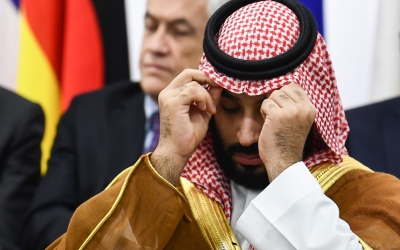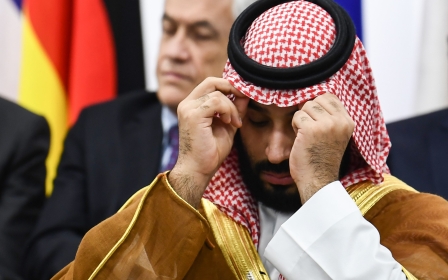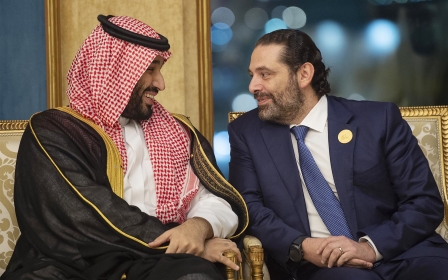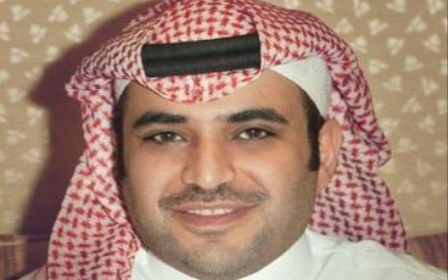Twitter bans ex-MBS adviser Qahtani and 'political spam' network targeting Qatar
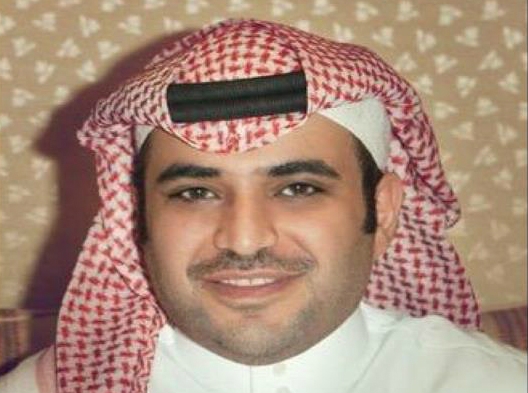
Twitter suspended the account of former Saudi royal court adviser Saud al-Qahtani on Friday, nearly a year after he was sacked over his suspected role in the murder of journalist Jamal Khashoggi, the Reuters news agency has reported.
The social network also separately removed accounts linked to Saudi Arabia’s “state-run media apparatus” and others in the United Arab Emirates (UAE) and Egypt, all of them amplifying pro-Saudi messages, according to a company blogpost.
In a blog post, Twitter said: "We have removed a network of 267 accounts originating in the United Arab Emirates (UAE) and Egypt.
"These accounts were interconnected in their goals and tactics: a multi-faceted information operation primarily targeting Qatar, and other countries such as Iran. It also amplified messaging supportive of the Saudi government."
Twitter said those accounts were managed by a private company called DotDev, which identifies itself on its website as a “custom software solutions company based in Abu Dhabi”.
DotDev also has an Egyptian affiliate based in Giza, outside of Cairo.
Twitter took down an even larger network of 4,258 accounts which it said operated exclusively from the UAE, employing fake names and tweeting mostly about Qatar and Yemen. It did not name an entity behind that operation.
The Twitter actions follow on the heels of Facebook’s removal last month of 350 fake accounts and pages promoting Saudi propaganda, which marked the first time a tech company had linked such activity back to the Saudi government.
Facebook said at the same time it had also suspended a separate network of more than 350 accounts linked to marketing firms called New Waves in Egypt and Newave in the UAE.
Electronic army
Since the sacking, Qahtani, a top aide to Saudi Crown Prince Mohammed bin Salman, has yet to appear in public or post on social media, as he once did frequently.
Qahtani ran the royal court’s media centre as well as an electronic army tasked with protecting the kingdom’s image and attacking its perceived enemies online.
He dictated Saudi Arabia’s official line on issues including its diplomatic dispute with Qatar and security and human rights.
Qahtani has not tweeted since 22 October, shortly after he was fired, but sources told the Reuters news agency in January that he continued to wield considerable influence behind the scenes.
He is not among the suspects on trial for the murder of Khashoggi, who was killed in the Saudi consulate in Istanbul in October, according to sources familiar with the matter.
His absence from the trial comes after a Saudi royal told the Wall Street Journal that "MBS had no intention whatsoever to let go of Qahtani and was furious when he was fired by his father".
Khashoggi, a columnist for the Washington Post and Middle East Eye, was a vocal critic of the Saudi government.
The Washington Post has reported that MBS has maintained regular contact with Qahtani despite the international outcry against the royal adviser.
On 28 August, Oslo-based Palestinian exile and critic of the Saudi regime, Iyad al-Baghdadi, tweeted that he "received news that Saud Al Qahtani (SQ) had been poisoned to death by Mohammed bin Salman. The source is well placed and has been consistently reliable for nearly a year. I cannot publicly reveal anything else about this source".
Baghdadi’s Twitter thread on Qahtani's alleged poisoning is yet to be officially backed up by a third party, but neither Qahtani nor the Saudi regime has issued a statement confirming his continued existence or acknowledging his death.
Middle East Eye propose une couverture et une analyse indépendantes et incomparables du Moyen-Orient, de l’Afrique du Nord et d’autres régions du monde. Pour en savoir plus sur la reprise de ce contenu et les frais qui s’appliquent, veuillez remplir ce formulaire [en anglais]. Pour en savoir plus sur MEE, cliquez ici [en anglais].


